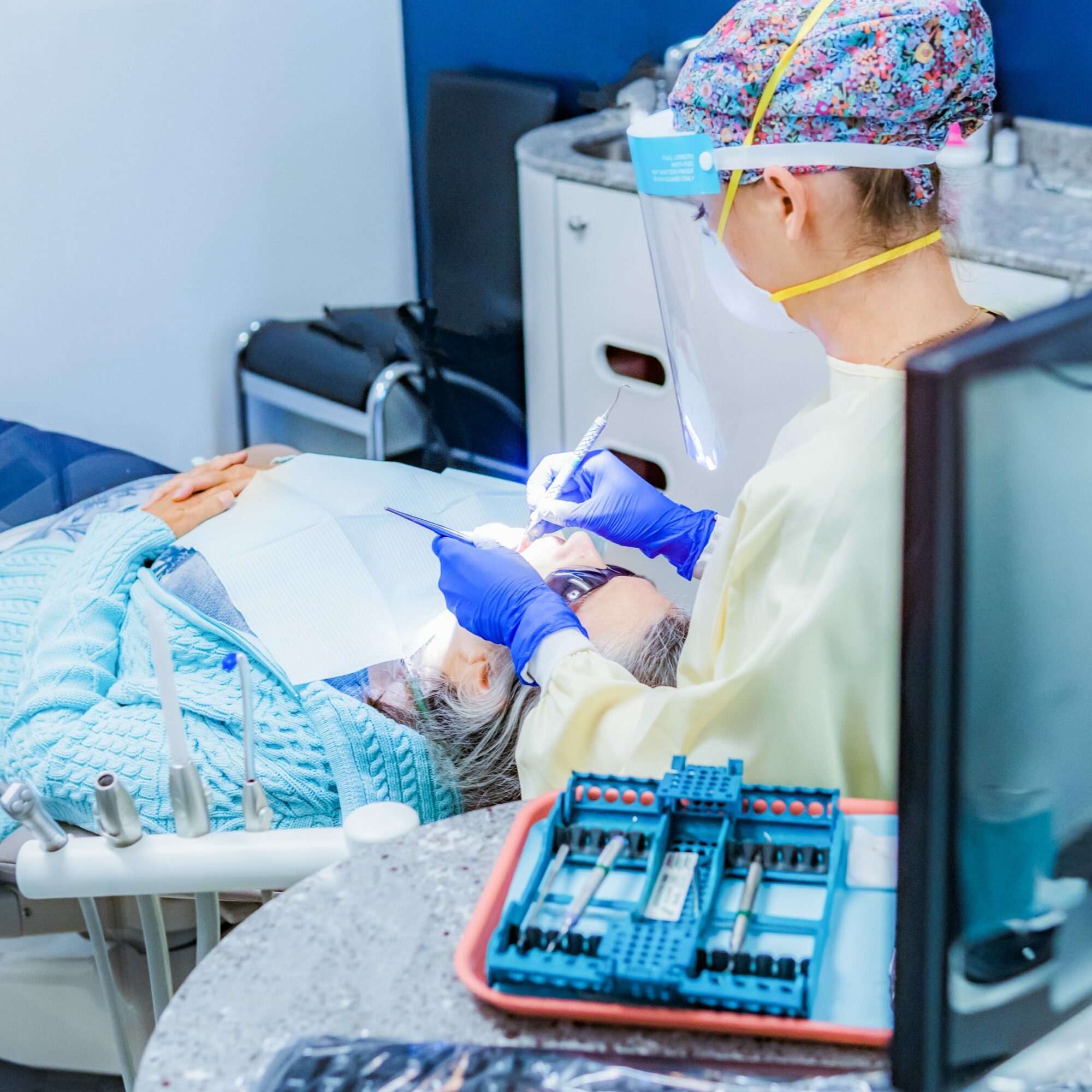One of the ways that we personalize our approach to your dental care is through comprehensive testing. The small samples you provide allow our labs to check your oral bacteria and your biocompatibility to the materials commonly used in dentistry.
Benefits:
- Understand your personal risk profile.
- Find and treat developing conditions earlier.
- Guard against allergic reactions and chronic inflammation by using alternative materials.
We go beyond what the human eye can see to provide you with the most proactive care possible.

Oral bacteria testing for better dental care
Everyone has their own personal microbiome in their mouth consisting of dozens or even hundreds of species, and we get exposure to new ones every time we eat, drink, or kiss someone. Many types of bacteria are completely harmless, and some, like probiotics, are even beneficial because they help with digestion.
Some bacteria can harm us by causing cavities or gum disease, and live in plaque, the sticky coating that develops on our teeth over time (even if we have healthy brushing and flossing habits).
Other bacteria have a suspected connection to heart disease, diabetes and Alzheimer’s, and can enter your bloodstream through cuts or inflamed tissue in your mouth.
To sample the bacteria in your mouth, we take a few painless swabs and send them to the lab for DNA testing. The results tell us what harmful bacteria you may have, and in what percentage. This helps us tailor our course of treatment for you. As always, taking preventive action now means you can often avoid more intensive treatment later.
Biocompatibility testing for sensitivities
Biocompatibility testing checks for any kind of allergic reaction or sensitivity of your tissue to materials and combinations of materials that are generally used in dentistry.
The restorative materials we use today have all been developed with “most people” in mind. The majority of patients can put up with a bit of toxicity, immune reactivity and galvanic stress. However, there are outliers, and perhaps their numbers are growing, who can’t stand up to those stresses as well as others. The prevalence of multiple chemical sensitivities (MCS) has been reported to be somewhere between 12 and 33% in the general population, with 2 to 6% having been actually diagnosed as such.
As a biologically-minded dental clinic, we strive to achieve all the goals of modern dentistry while treading as lightly as possible on our patients’ biological terrain. So while we work to maximize strength, durability, comfort and esthetics, we seek to minimize toxicity, immune reactivity, and galvanic stress.
A quick blood test is all it takes to help us create a more healthful experience for you in the long term.